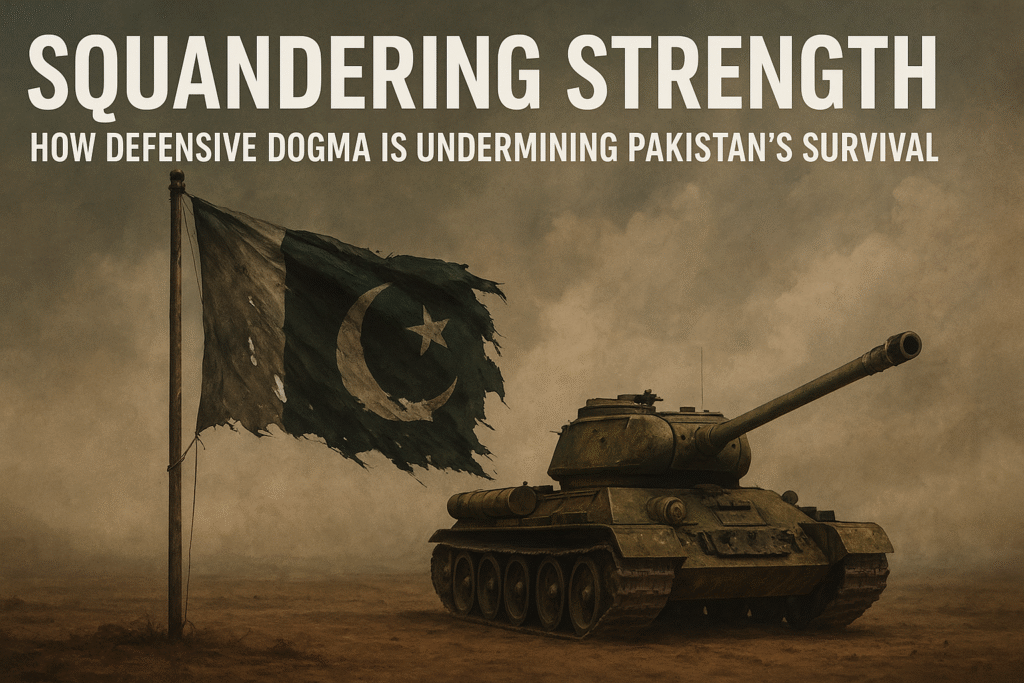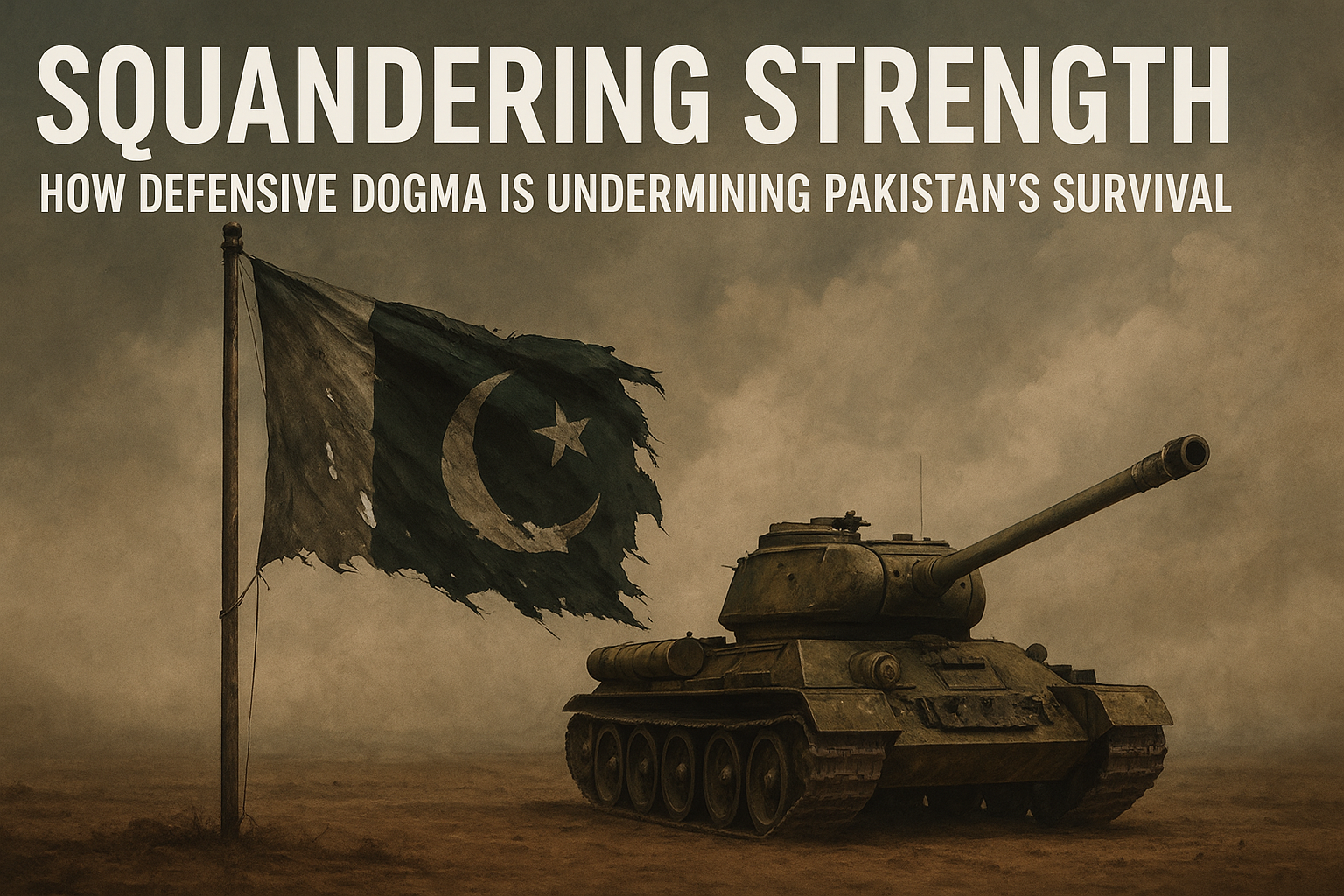 On May 10th, 2025, India and Pakistan agreed to a ceasefire following urgent diplomatic intervention by the United States. [1] The de-escalation came in the wake of the Pahalgam attack in Indian-administered Kashmir, which left 26 civilians dead. In response, New Delhi suspended the Indus Water Treaty (IWT) and launched Operation Sindoor, targeting multiple cities in Pakistan, despite offering no public evidence linking Islamabad to the incident. Pakistan retaliated with its own military offensive, Operation Bunyan Marsoos, intensifying the conflict and raising fears of a broader regional escalation.
On May 10th, 2025, India and Pakistan agreed to a ceasefire following urgent diplomatic intervention by the United States. [1] The de-escalation came in the wake of the Pahalgam attack in Indian-administered Kashmir, which left 26 civilians dead. In response, New Delhi suspended the Indus Water Treaty (IWT) and launched Operation Sindoor, targeting multiple cities in Pakistan, despite offering no public evidence linking Islamabad to the incident. Pakistan retaliated with its own military offensive, Operation Bunyan Marsoos, intensifying the conflict and raising fears of a broader regional escalation.
The ceasefire was engineered by the United States. Donald Trump said, “I am pleased to announce that India and Pakistan have agreed to a full and immediate ceasefire. Congratulations to both Countries on using Common Sense and Great Intelligence.” [2] Pakistan’s Foreign Minister Ishaq Dar and Indian Foreign Secretary Vikram Misri confirmed the ceasefire shortly after.
Interestingly, while India escalated military pressure by extending its operations beyond the Line of Control LoC) and striking multiple targets in Pakistan’s Punjab province, the United States showed little interest in intervening at that stage. Speaking to Fox News, U.S. Vice President J.D. Vance said, “…we’re not going to get involved in the middle of a war that’s fundamentally none of our business and has nothing to do with America’s ability to control it.” [3]
In fact, the U.S. push for mediation was prompted by Pakistan’s powerful defensive posture and offensive strikes against India, which resulted in the downing of multiple Indian fighter jets (including the prized Rafale French jets) and the destruction of military outposts and key installations at the Pathankot and Udhampur airbases, along with significant damage to military assets in Gujarat and Rajasthan. [4] Additionally, the Indian Air Force’s (IAF) inability to repel Pakistani strikes, coupled with the failure of its air defense systems, compelled New Delhi to seek U.S. involvement. Le Monde alluded to the weakness of the IAF in combat with Pakistan, while CNN reported that India wanted US assistance for a diplomatic off ramp. [5,6]
In the lead-up to the ceasefire, it was clear that Pakistan held the tactical upper hand over its larger rival, India. Yet, despite this advantage, Pakistan’s leadership swiftly acquiesced to U.S. pressure, relinquishing its strategic momentum without securing control over the three critical rivers—Indus, Chenab, and Jhelum—which serve as Pakistan’s agricultural and economic lifeline. This retreat was especially striking given the Pakistani government’s firm declaration just a month earlier in April: “Any attempt to divert or stop water meant for Pakistan under the Indus Water Treaty will be considered an act of war.” [7]
The purpose of war extends beyond mere defense—it is to achieve clear political objectives. For Pakistan, the primary strategic goal is securing uninterrupted access to the three vital rivers, a goal that can only be realized through the seizure of Kashmir. This requires a fundamental shift in both civilian and military thinking: moving away from a defensive military doctrine focused on limited tactical gains, toward an offensive doctrine aimed at achieving decisive, long-term strategic outcomes.
The offensive doctrine stipulates that defensive Jihad must be transformed into offensive Jihad accompanied by a host of political and diplomatic actions. When viewed from this lens, Operation Bunyan Marsoos taken from the ayah “Indeed, Allah loves those who fight in His cause in rows, as if they were a solid structure.” [TMQ: Surah As-Saff:4] is infused with a new meaning of organizing the Pakistani armed forces and motivating them for the sake of Allah to remove physical obstacles like the Indian military aggression on the path to securing the precious waters of the Indus and its tributaries through the annexation of Kashmir. This is how the messenger of Allah (saw) and the Khulafa Rashidun after him (saw) prepared for battles and accomplished amazing victories.
Subsequently, surrendering tactical advantages in exchange for a ceasefire that allows India to re-group and restock is prohibited. Allah says: “So do not weaken and call for peace while you are superior; and Allah is with you and will never deprive you of [the reward of] your deeds.” [TMQ: Surah Muhammed:35]
As long as Pakistan’s leadership remains bound to a defensive military dogma and continues to be schooled on politics by foreign powers, both its civilian and military institutions will persist in squandering tactical gains and enduring grave strategic setbacks. This passive mindset has repeatedly undermined Pakistan’s national interests—leading to the loss of Kashmir in 1948, the separation of East Pakistan in 1971, the failure at Kargil in 1999, the erosion of strategic depth in Afghanistan in 2001, and now, most alarmingly, the looming threat to Pakistan’s water security. If this trajectory is not reversed, the country faces an existential crisis—one engineered by its own leadership and subservience to foreign interventions.
References
[1] Associated Press (May 2025). India and Pakistan accuse each other of violating ceasefire hours after reaching deal. AP. Available at: https://apnews.com/article/india-pakistan-missiles-air-bases-1de0ca13c13899f0bd3530b4808d45ad
[2] Aljazeera, (May 2025). India and Pakistan agree ceasefire: What does it mean? Available: https://www.aljazeera.com/news/2025/5/10/india-and-pakistan-agree-ceasefire-what-does-it-mean?utm_source=chatgpt.com
[3] Fox News, (May 2025). Vance says India-Pakistan conflict ‘none of our business’ as Trump offers US help. Fox News. Available at: https://www.msn.com/en-us/news/other/vance-says-india-pakistan-conflict-none-of-our-business-as-trump-offers-us-help/ar-AA1EtLVo?ocid=BingNewsSerp
[4] Pakistan Today, (May 2025). Pakistan Launches ‘Operation Bunyan-un-Marsoos’ in Retaliation Against India’s Aggression. Pakistan Today. Available at: https://www.pakistantoday.com.pk/2025/05/10/pakistan-launches-operation-bunyan-un-marsoos-in-retaliation-against-indias-aggression/
[5] Le Monde, (May 2025). Military operation in Pakistan reveals weaknesses of India’s air force Available at: https://www.lemonde.fr/en/international/article/2025/05/08/military-operation-in-pakistan-reveals-weaknesses-of-india-s-air-force_6741047_4.html
[6] Middle East Eye, (May 2025). India reportedly sought ceasefire after attacks. Middle East Eye. Available at: https://www.youtube.com/watch?v=fOGRXYC0HfY
[7] MSN, (April 2025). Pakistan says any attempt to divert water meant for it under Indus Water Treaty will be considered Act of War. MSN Available at: https://www.msn.com/en-in/politics/government/pakistan-says-any-attempt-to-divert-water-meant-for-it-under-indus-water-treaty-will-be-considered-act-of-war/ar-AA1Dxs1r?ocid=BingNewsVerp

